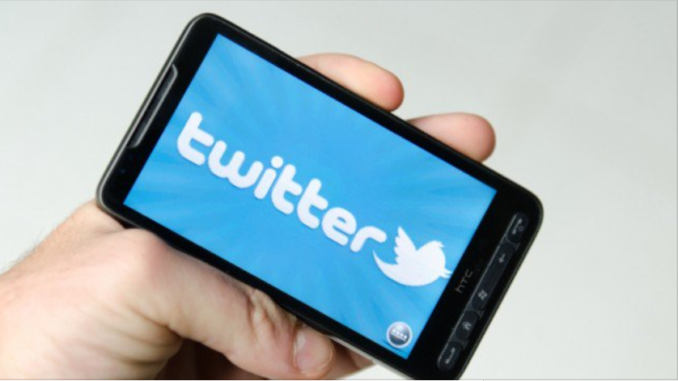
CONTRARY to the ridiculous claim of the Federal Government that Twitter Inc failed to choose Nigeria for its first African office because of negative media representation, the country’s dispiriting investment climate is enough to scare away the most adventurous investor. Hence, the ‘snub’ by the American social media company is not surprising. Ghana has bested Nigeria on many fronts in providing an enabling environment for businesses to thrive and even attracting companies fed up with the suffocating operating environment the latter has offered in recent years.
In June 2018, it was reported that Google would open an artificial intelligence research centre in Accra, Ghana, which was the first on the African continent. Ghana likely appealed to Google because of its high-quality education system and political stability, an expert in the region told CNBC. Aside from some local industries relocating to Ghana, between 2006 and 2008, Nigeria’s only two tyre manufacturers, Michelin and Dunlop, relocated their factories to Ghana, citing epileptic energy supply. South Africa retail chains, Woolworths, Truworths and Mr Price, have all left Nigeria in the last few years, with Shoprite announcing it is leaving next year. Even exasperated Nigeria doctors are exiting in droves from the health sector, headlined by poor funding and decrepit infrastructure.
With only about 4,000 megawatts of electricity available for a country of over 200 million, the Manufacturers’ Association of Nigeria said the manufacturing sector spent over N67.38 billion on self-generated electricity with energy cost alone, accounting for over 38 per cent of production cost, in 2019.
The snub was therefore not unexpected, a sad reality the government, unfortunately, seems not to come to terms with and diligently address. A World Bank Enterprise survey reported that 322 private firms closed in Nigeria between 2009 and 2014 owing to stifling business regulations, corruption, and the political environment. MAN said 196 manufacturing companies shut down between 2015 and 2017, on the watch of the President, Major General Muhammadu Buhari (retd.).
Explaining the reasons for preferring Ghana as the best place to set up shop in Africa, Twitter said, “As a champion for democracy, Ghana is a supporter of free speech, online freedom, and the Open Internet, of which Twitter is also an advocate.” This indicts Nigeria seriously, where the security agencies brutalise the citizens brazenly, and the religious police destroy private investments and arrest people for not observing Ramadan. Justifying its investment decision, the company emphasised, “Furthermore, Ghana’s recent appointment to host the secretariat of the African Continental Free Trade Area aligns with our overarching goal to establish a presence in the region that will support our efforts to improve and tailor our service across Africa.”
Nigeria’s receding influence in international diplomacy over the years has been telling. The Buhari regime needs to reverse the worsening operating environment for big businesses, SMEs and start-ups to make the country more investment-friendly and competitive. For instance, in the 2020 World Bank’s Ease of Doing Business report, Ghana, at 118, ranks 13 places ahead of Nigeria at 131, out of the 190 countries. The CNN reports that Ghana, the 13th largest in Africa by population size, attracted the largest Foreign Direct Investment in West Africa, surpassing the continent’s most populous country, Nigeria. Its FDI for the first half of 2020 was $785.62 million, representing 90 percent of the total investment in the country, at $869.47 million for the same period.
According to a report, in the first quarter of 2020, foreign investment in Ghana birthed 69 projects, with the services sector capturing the highest by registering 25 projects, followed by the manufacturing and export trade sectors with 21 and 11 projects, respectively. Google, Microsoft and Huawei are among international tech giants that have expanded their operations in Ghana. But in Nigeria, the economy took a heavy beating from a relentless spike in insecurity, erratic policy choices in the telco industry and lack of political will by the government.
Unfortunately, the Minister of Information and Culture, Lai Muhammed, thinks, rather inexplicably, that the media should be blamed for the snub. “This is what you get when you de-market your own country. Nigerian journalists were…painting Nigeria as a hell where nobody should live,” he unfairly lamented. This is not only disingenuous but also wide of the mark. Nigeria’s investment climate has been everything but friendly. Sadly, the Buhari regime, as signposted by Muhammed’s finger-pointing, is living in denial of the worsening realities start-ups have had to contend with in Nigeria.
Aside from the policy environment that most organisations find inclement, the debilitating security challenge in the country is a huge disincentive to any investor, local or foreign. With a decade-long Islamist insurgency in the North-East, heart-rending mass abduction of schoolchildren, banditry and cattle rustling by terrorists in the North-West, killer herdsmen rampaging in the North-Central and wreaking havoc as they move southward, as well as piracy in the Gulf of Guinea, country after country have been issuing travel advisories to their citizens against visiting Nigeria. In the 2020 Global Peace Index, Ghana ranked as the 43rd most peaceful country in the world, placing 104 spots ahead of Nigeria, a pointer to the unfriendly business environment. Money goes to where it is safe. This is no media creation or representation; instead, it is a scary lived reality to which the government has not been able to find an answer. Yet, it deludes itself that, “The natural expectation would have been for Nigeria to be the hub for Twitter in this part of Africa.”
Indeed, the Buhari regime has been closing the civic space with its highhanded response to protests and free speech. There is also a lack of coordination in government operations with agencies working at cross-purposes, thereby causing uncertainty in the investment climate. Companies make investment decisions based on tangible and intangible considerations. Unless Nigeria fixes the intangibles as well, it will continue to be snubbed by the best of the world in terms of FDI.
END

Be the first to comment